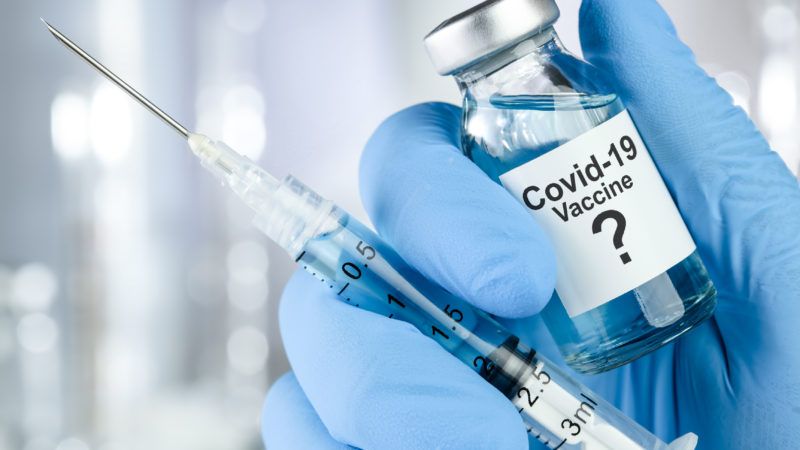Trump's Vaccine Cheerleading Is Undermining Public Trust in the Vaccines
Polls show a country increasingly leery of a politicized COVID-19 vaccine approval process.

President Donald Trump has suggested several times that a vaccine for COVID-19 could become available before Election Day. Polls suggest that the more the president touts the hurried arrival of a COVID-19 vaccine, the more distrustful Americans become of the vaccine approval process and the less likely they are to get inoculated once one becomes available.
On Wednesday, in light of that growing unease with the speed at which COVID-19 vaccines are being developed and tested, public health officials outlined new, higher standards for ensuring that COVID-19 vaccines are safe and effective before the Food and Drug Administration (FDA) approves them for emergency use. Asked about the proposed stricter guidelines later that day, Trump replied: "That has to be approved by the White House. We may or may not approve it. That sounds like a political move."
The president made the salient point that "if they delay [a vaccine] a week or two weeks or three weeks, that's a lot of lives you're talking about." The president also declared that he has "tremendous trust in these massive companies that are so brilliantly organized, in terms of what they've been doing with the tests." He specifically referenced Pfizer, Johnson & Johnson, and Moderna, the current leaders in the race to develop and deploy a COVID-19 vaccine.
However high his regard is for these companies, they are certainly worried about Americans' trust in the vaccines they are developing. Earlier this month, to allay public fears that political pressure will rush the approval of their vaccines, nine leading pharma companies issued a pledge committing themselves to "developing and testing potential vaccines for COVID-19 in accordance with high ethical standards and sound scientific principles." The companies specifically said that they would submit their vaccines only "after demonstrating safety and efficacy through a Phase 3 clinical study that is designed and conducted to meet requirements of expert regulatory authorities."
During his Wednesday press conference, the president suggested that the vaccine makers have been making great progress. "They're coming back with great numbers and statistics and tests and everything else that they have to come back with," he said. "I don't see any reason why [a vaccine] should be delayed further." But none of the data from the current Phase 3 coronavirus vaccine clinical trials have yet been reported.
In mid-September Pfizer CEO Albert Bourla said on the CBS' Face the Nation that "we have a good chance that we will know if the product works by the end of October." Moderna CEO Stéphane Bancel told CNBC that his company is likely to have enough late-stage testing data to know whether its vaccine works or not in November. Johnson & Johnson's chief scientist, Paul Stoffels, told Business Insider, "We hope to see an endpoint around the end of year or early next year." In the hope that their vaccines will prove to be safe and effective, the federal government has already signed contracts worth billions of dollars with Pfizer, Moderna, and Johnson & Johnson to manufacture tens of millions of doses before the companies and regulators know if their vaccines will work.
In response to Bob Woodward's revelation that he deliberately downplayed the seriousness of COVID-19, Trump insisted that he did so because "The fact is I'm a cheerleader for this country….We want to show confidence. We want to show strength." But his pre-election cheerleading about COVID-19 vaccines seems to be undermining, not strengthening, Americans' confidence in them.


Show Comments (264)